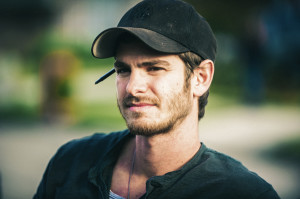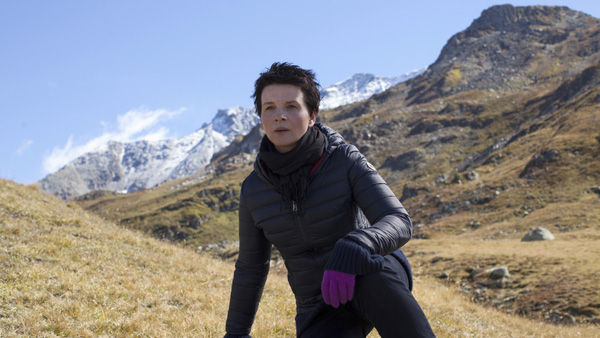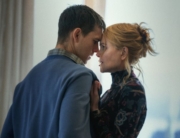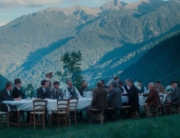With a robust showing of documentaries and foreign and American-made films in 2015, there are more than enough to choose from for a top 10 list. The options make for a more spirited end-of-the-year discussion than usual and are also why so many of the awards and nominations that have been announced thus far have been all over the place. There isn’t the solidity of two films that dominate the conversation: Boyhood and Birdman last year and Gravity and 12 Years a Slave in 2013.
The list has been comprised from input from the site’s contributors, but coming to a complete agreement is impossible when so many options are available. Ask a subjective question to 12 highly opinionated reviewers, and you’re bound to get 12 disparate answers. (Coming to a consensus was like trying to wrangle cats.) Yet the films listed below continually kept popping up as contenders. The result is a variety of genres: the unabashedly art house, a personal essay, and films with classically structured narratives. (If you think a few are middle-of-the-road, wait until you see the selection from the Ukraine.) And since there are no strict rules, we’re adding one more, raising it to 11 (also in honor of This Is Spinal Tap). Kent Turner
Who knew that Amy Winehouse was such a cheeky, clever charmer? Intimate footage in Asif Kapadia’s documentary Amy reveals the singer/songwriter as a passionate musician and an irresistible smartass to boot. That, of course, was before her career—and life—collapsed fast into a drug-addled nightmare. The story of the pop star’s decline is a lurid one, but sincere revelations from friends and family give it a sober emotional depth, and the unguarded scenes of Winehouse’s early spark only make her implosion more devastating. Caroline Ely
The year’s most timely and thoughtful double feature offers two sharply contrasting films that tackle a byzantine subject. The economic recession of 2008—not the likeliest entertainment subject—is made viscerally approachable through two different but concise and whip-smart approaches. In the form of a comedy and a tragedy, the world is turned upside down. The glib alarm ringer The Big Short, directed by Adam McKay, delves into the boardroom chicanery that led to rampant fraud and recklessness, aided by a razor-sharp ensemble of all-stars. With equal verve, the Ramin Bahrani’s electric melodrama 99 Homes follows a single dad (Andrew Garfield, in his best role so far, supported by an outstanding supporting cast) as he’s kicked out of his home and earns money any way he can to buy back his home.
This fall, there was an uptick of traditional narratives: the thriller Bridge of Spies, the 3-D re-creation of a daredevil stunt in The Walk, and John Crowley’s Brooklyn, based on Colm Toibin’s novel. It mixes open-hearted sentimentality with star Saoirse Ronan’s sublimely subtle performance of a young Irish immigrant’s new American life in the 1950s. She transforms from a homesick country mouse to her passing herself off as her hometown’s favorite daughter—though she’s not entirely forthcoming; the movie’s also a romance with reservations. Rueful and optimistic, it joins two more female-driven films on the list. KT
A meditation on fame, age, and power may sound a bit lofty, but sharp details and excellent performances from Juliette Binoche and Kristen Stewart elevate Olivier Assayas’s Clouds of Sils Maria to an astute, contemporary “woman’s picture” classic. Binoche plays an international star dangerously north of 40, Stewart the savvy assistant helping her survive in a dumbed-down pop culture; their story engages both intellectually and emotionally as they navigate the always-fraught lines between friend and helpmate, mentor and ambitious mentee. CE
The Look of Silence, Joshua Oppenheimer’s prequel to his audacious The Act of Killing (2012), devastatingly turns from the braggart perpetrators of Indonesia’s wholesale 1960’s mass murders to the victims. Adi Rukun, an optometrist, offers eye exams as a way to question those who killed in plain sight his brother, a rubber plantation labor organizer, in 1965. Rukun’s complicit neighbors describe the horrors in matter-of-fact detail and identify individual murders and murderers, many of whom are still in power. He looks beyond the awful facts into the soul of his country as he tracks missing relatives from their arrests to the killing fields. Viewers will squirm over the international indifference. Nora Lee Mandel
Documentarian Patricio Guzmán has been haunted by the military dictatorship that brutally ran Chile from 1973 to 1990—he was held in solitary confinement and nearly executed. In his stunningly filmed stream-of-consciousness essay The Pearl Button, he creatively explores and ruminates on the regime’s ruthless violence within the larger historical context of colonial genocide against indigenous people and the decimation of the environment. His ever more arresting imagery brilliantly sensitizes viewers to repeating patterns of political reality that can always happen again. NLM
It may be hard to get excited about seeing Lenny Abrahamson’s Room, and understandably so. Emma Donoghue’s script, based on her best-selling novel, features a woman who’s been trapped in a shed for seven years by her kidnapper-rapist along with her five-year-old son, who was fathered by the man; the boy has never known the outside world. The unspeakable lies just under the surface of this pas de deux. However, the film focuses on a uniquely beautiful relationship between mother and child, who find love in a house of horrors. It’s a brilliant triumph of the spirit and imagination, with stellar performances by Brie Larson and a preternaturally good Jacob Tremblay. Daniel Glenn
Two days in October 1944 inside the Auschwitz crematoria are intimately relived through the point of view of one prisoner. Strikingly, debut director Laszlo Nemes’s Son of Saul relentlessly focuses on the face of Geza Rohrig as Saul, a Hungarian Jew nearing the doomed end of his months-long shift in a Sonderkommando unit that daily and systematically leads thousands to their deaths. Amid the babel of nightmarish sounds and a blurry vision of hell, he is suddenly struck to assert that one boy’s body was that of a human being and could even be his son, stirring him to take action, first alone and then with a rebellion in the extermination factory. NLM
The comparisons to All the President’s Men started early for Spotlight. Both find clever and compelling ways to dramatize investigative journalism. But the moral enormity of the latter, dealing with the Boston Globe’s investigation of sexual abuse in the Catholic Church, sets it apart. This is not a thriller but a tragedy, played out on a painfully human scale. It’s also a complicated story to tell, which director and co-writer Tom McCarthy traverses deftly. DG
Director Myroslav Slaboshpytskiy’s disturbing debut, The Tribe, makes a shy boy’s initiation and rise in the vicious criminal world of violent bullies viscerally shocking. With all of the on-screen communication made through sign language, it becomes a silent, damning Orwellian allegory about the abuse of power and the universal need for love, set at a rundown (and fictional) Ukrainian boarding school for the deaf where running drugs, prostitution, and thievery are endemic. Gangsters like these dangerous teens have never been seen in movies before, and never have the deaf been portrayed so unsentimentally and explicitly to aggressively defy expectations and stereotypes. NLM
Other honors, in no order whatsoever:
The documentary genre of 2015: the artist biography (Amy; What Happened, Miss Simone?, Listen to Me Marlon; Seymour: An Introduction; The Wrecking Crew)
Best transition of a cherished fur ball to the screen: Paddington
Angriest bear: Leonardo DiCaprio’s nemesis in The Revenent
Best courtroom scene: from the documentary 3 1/2 Minutes, 10 Bullets (turn up the volume; the witness is almost inaudible)
Scariest showbiz hanger-on: Paul Giamatti in Straight Outta Compton and Love & Mercy
Most debauched version of That ’70s Show: Saint Laurent
The Climb Every Mountain Award: Meru
The movie not for the entire family: Love
Best American noir-meets-Stand by Me: Cop Car
Most alarming example of audience participation: the Cannes Film Festival fashion police’s exclusion of middle-aged women from the premiere of the 1950s lesbian romance Carol for wearing flats










Leave A Comment